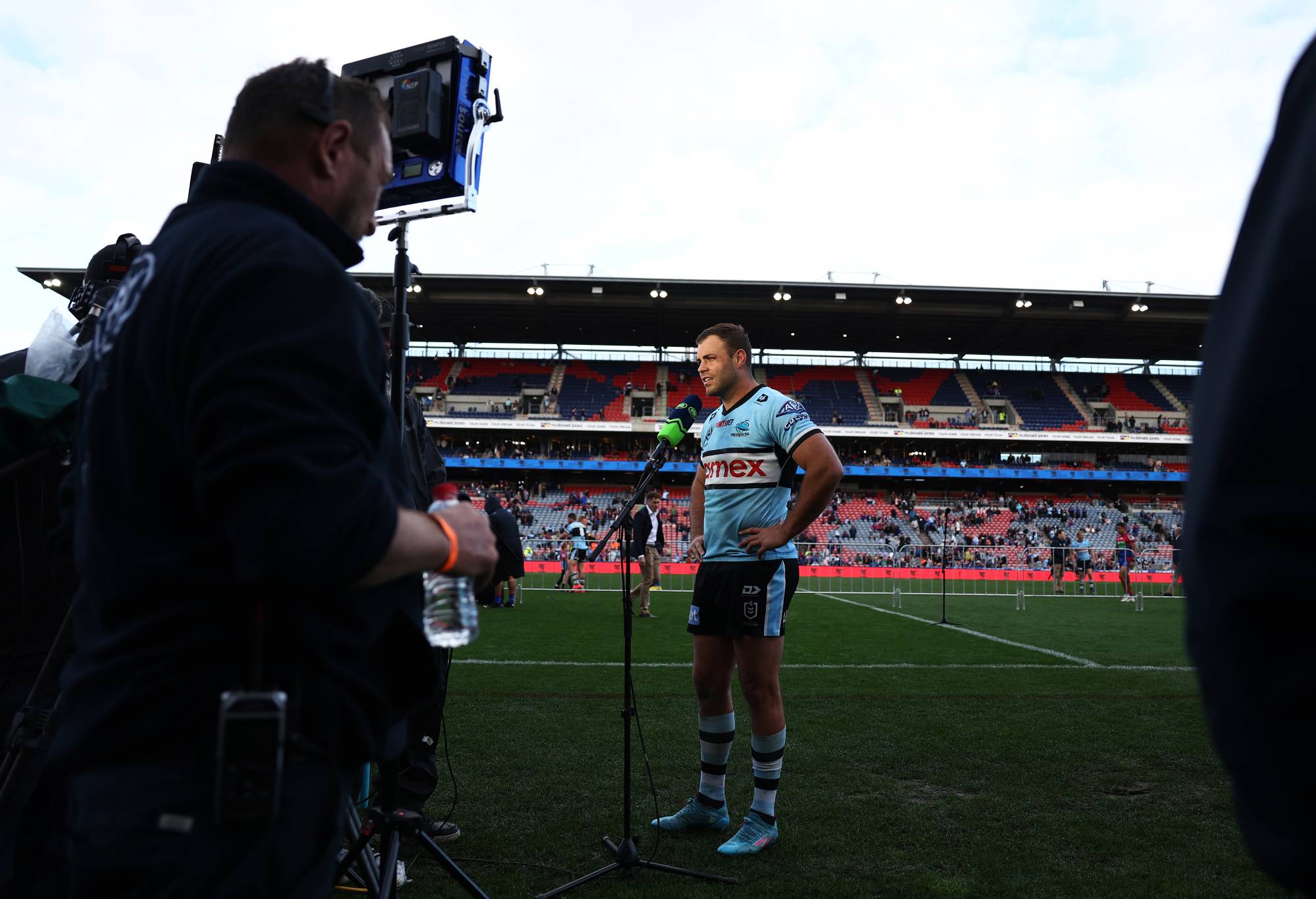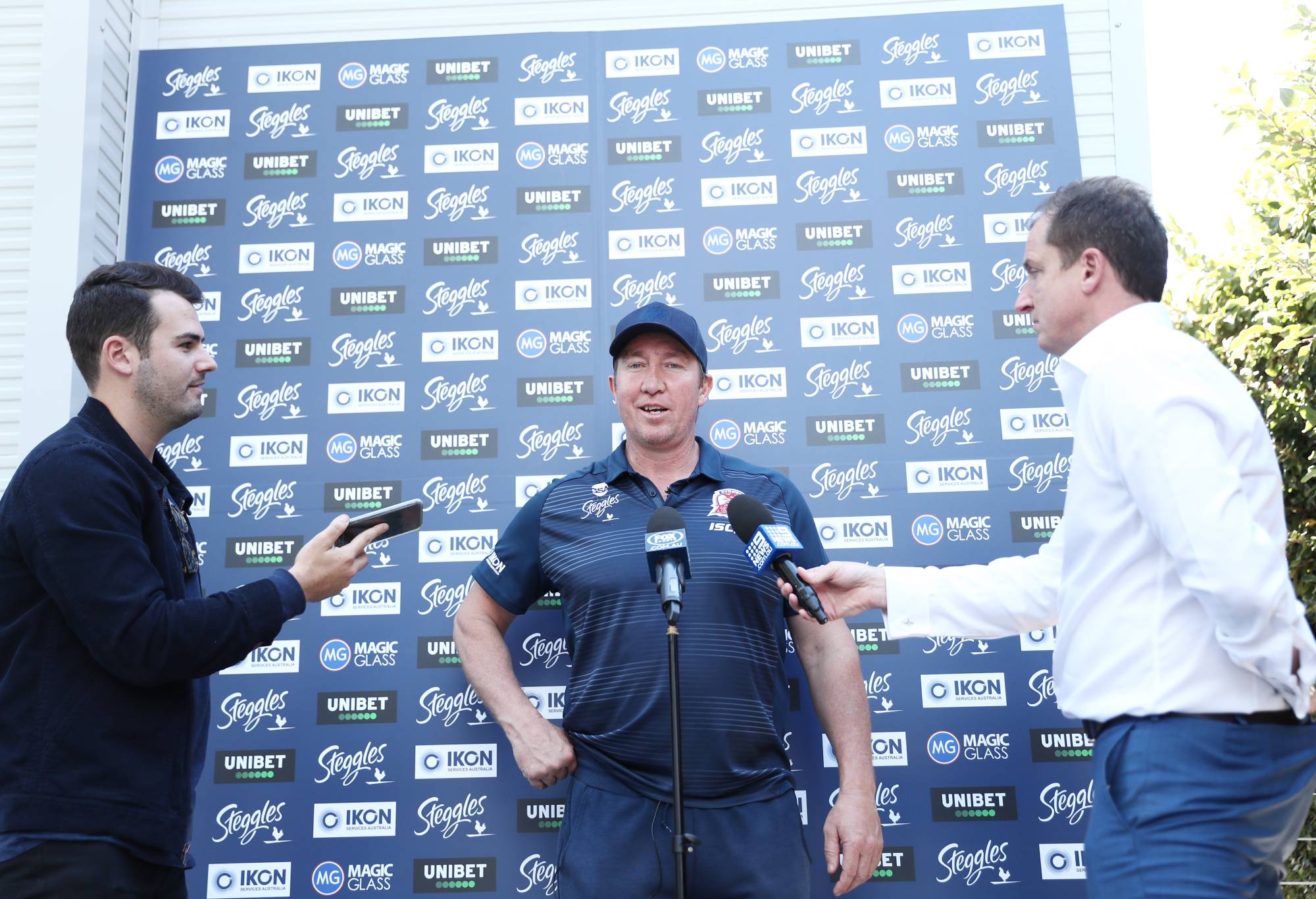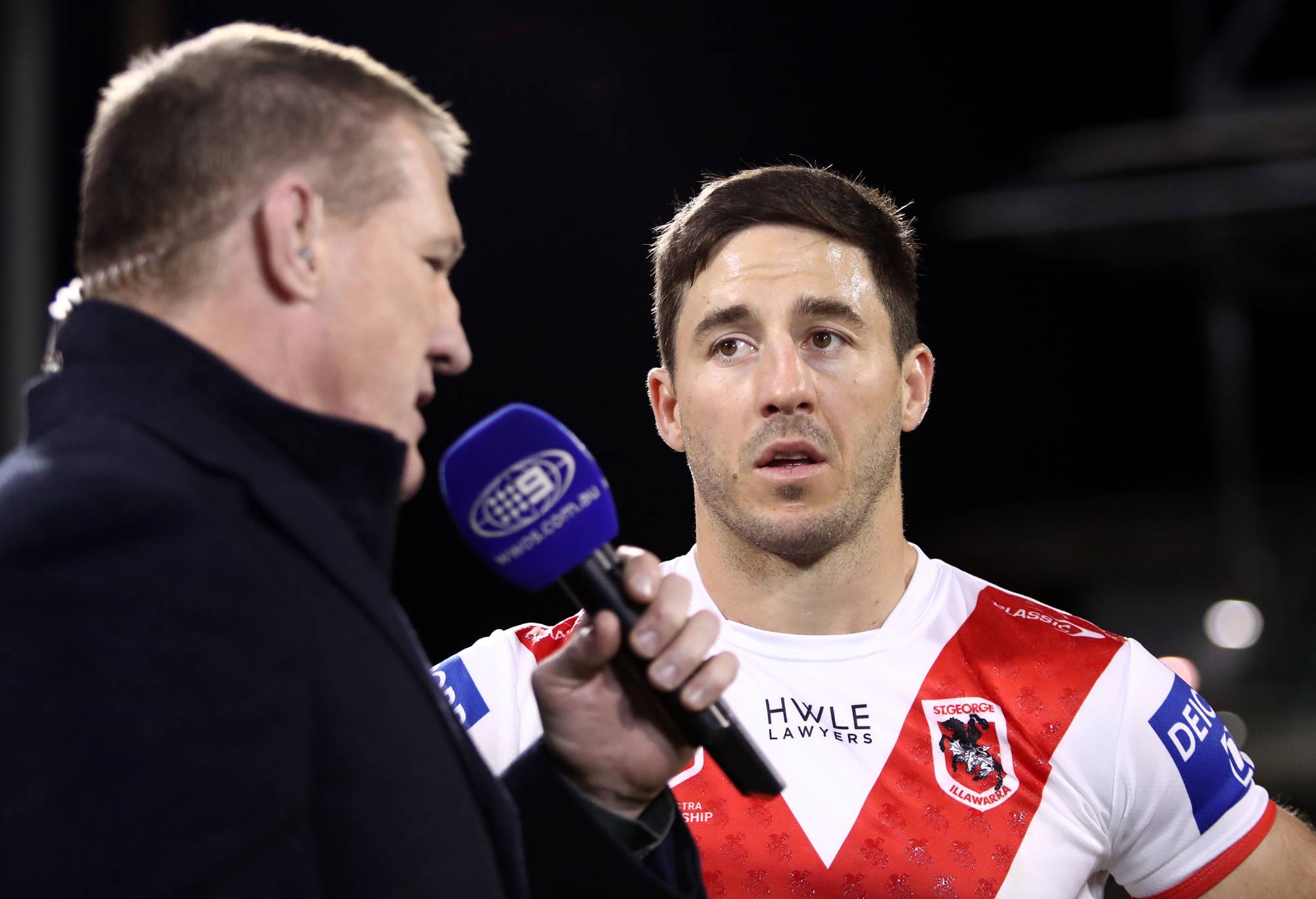If the Rugby League Players Association truly wanted to cause uproar with their CBA protest, they should threaten to increase the mid-game interviews rather than boycott them.
Apart from the times a player has dropped an F-bomb during an NRL broadcast, can you ever remember any of them saying anything that has been insightful, interesting or in the least bit relevant to the game they’re in the midst of trying to win.
Usually out of breath and hoping the coach isn’t about to bake them for any number of reasons when they get into the dressing room, most of those interviews are a variation on two themes.
The player whose team is in the lead.
“We’ve got to keep what we’re doing,” will be in there somewhere, sprinkled in with some sort of reference to the team’s “intensity in defence” with a dash of “gotta play the full 80 minutes” even if they’re up by 42.

(Photo by Mark Metcalfe/Getty Images)
Or there’s the rarer player whose team is trailing interview. They’re harder to wrangle for these puff pieces.
They’ll say they’ve got to “get back to the game plan,” sprinkled in with some sort of reference to the team’s “intensity in defence” with a dash of “gotta play the full 80 minutes” even if they’re down by 42.
If it’s a former player asking the questions instead of an actual journalist, you can be sure they won’t ask about the two players that were just sent off but toss out a “it looks pretty fast out there, mate” as their only prompt for the conversation.
The RLPA has few realistic alternatives to their game-day media ban if the players truly want to force the NRL to agree to their CBA negotiation sticking points.
If they go on strike, they’ll immediately be painted as greedy bastards who couldn’t care less about the fans.
They tried a Dally M Medal presentation boycott way back in 2003 and all that really resulted in was an asterisk in the record books well before the Melbourne Storm made it fashionable.
The players deserve credit this time around for being united through these negotiations which were supposed to be completed last year for the new deal to kick in back in November.
NRL and NRLW players won’t be doing game-day media commitments as part of the RLPA’s protest against the ARL Commission dragging the chain in getting a CBA deal sorted.
They have also been instructed not to answer phone calls from journalists, not that this was needed for them to brush a reporter.
NRL fans are savvy enough to know that players have never said more without saying anything.
It’s not just the game-day interviews where they have been instructed to trot out cliches, give nothing away and show as little personality as possible.
Players will continue to do media sessions earlier in the week where they are trotted out in front of sponsorship hoarding to face whichever media outlets have turned up to give banal answers to questions that are for the most part not in the slightest bit controversial.
And such is the barren landscape of the Australian sports media industry, more often than not, there’s very few reporters on the ground during the week or at matches to extract anything meaningful from the players.
The majority of the media conferences during the week and after the game are put up on the club’s official websites, with stating the obvious headlines which tell the fan all they need to know about how revealing the five-minute chats have been.

There hasn’t usually been enough reporters to form a scrum at NRL media sessions in recent years. (Photo by Mark Metcalfe/Getty Images)
“[Insert team name] ready for vital home clash” … “We’ve got a next man up mentality” … “[Insert coach’s name] expects tough battle” … “We need to keep improving.”
Even prior to the pandemic, there were several matches where only one reporter was in attendance at a post-match media conference.
Technically when one person asks a coach questions, they are conferring, but it ain’t a conference.
Kick it back 20 years ago and an NRL blockbuster would often attract around a couple of dozen reporters – the major newspapers would send two or three, there’d be magazine scribes scouting around the sheds looking for angles that would hold for later in the week, radio and TV newshounds not attached to the game-day broadcasts.
Nowadays, you’d be lucky to get enough journos at a game to form a scrum due to the shrinking newsroom resources and the pathetic access given to reporters after the games.
The crux of the current RLPA protest is to remove players from game-day interviews because Channel Nine and Fox Sports pay a motza for the broadcast rights and nothing gets NRL suits into action quicker than any threat, perceived or otherwise, to the game’s value when it comes to its main revenue stream.

Ben Hunt is interviewed by Paul Gallen. (Photo by Jason McCawley/Getty Images)
“Ultimately the action that has been proposed means that our broadcast partners and our fans and our [commercial] partners and our sponsors are the ones who are going to suffer,’ said NRL CEO Andrew Abdo on Wednesday night, laying the groundwork for his attempt to win in the court of public opinion with this stoush.
The RLPA’s circuit-breaker will hopefully bring the CBA negotiations to an end so that players get most of what they want (they won’t get it all), the NRL execs can say they didn’t give up too much ground (they’ll have to give up some) and the fans can stop hearing about the never-ending impediments to the deal being sealed because most of them couldn’t care less.
And the supporters will know all is well again once the sweaty players pause on their jog off the field to let the TV sideline reporters know that they’ve “gotta play the full 80 minutes”.































































































